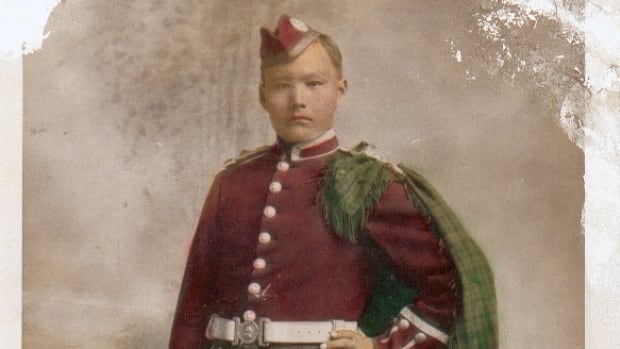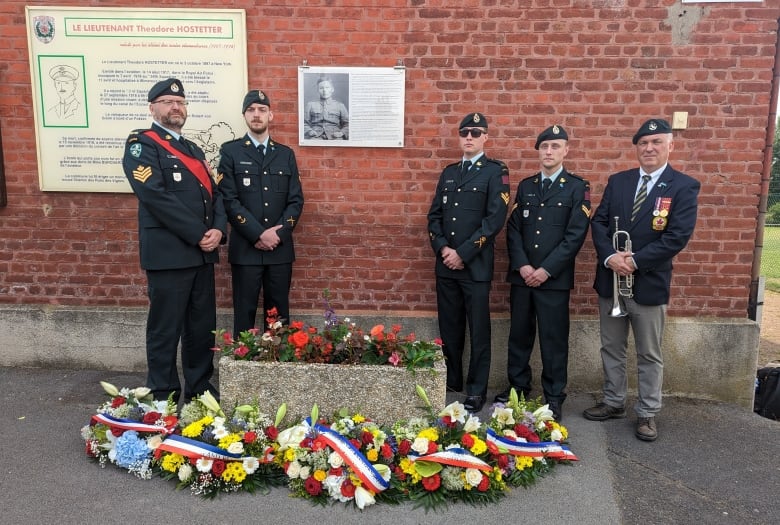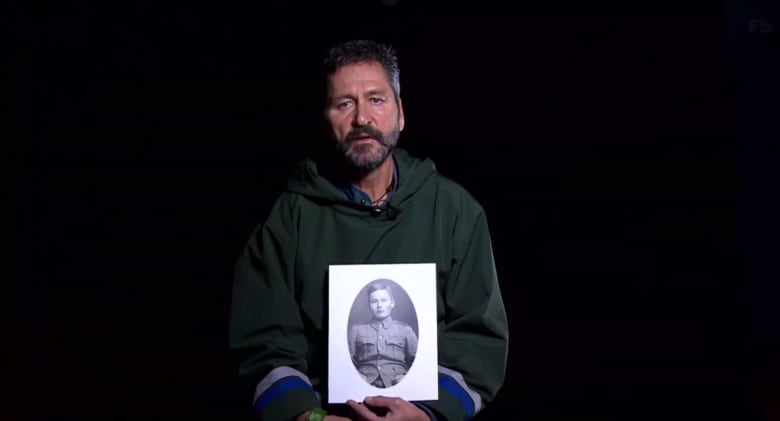
The village of Masnières in northern France honoured one of its war heroes on Friday, unveiling a plaque dedicated to Labrador Inuk John Shiwak.
Lance-Cpl. Shiwak was born in Rigolet in 1889, and is believed to have died in Masnières while fighting to liberate France in 1917. He was highly respected in his role as a sniper, and was awarded the British War Medal and Victory Medal.
His great-nephew, Danny Pottle, was grateful to see his relative receive such an honour abroad.
“It’s a mixed bag of emotions,” Pottle told The St. John’s Morning Show on Friday. “This has been a dream of ours for quite some time, and it’s an honour and we’re so happy that this is taking place today.”
Pottle started advocating alongside his brother, Barry, about 20 years ago looking for ways they could honour their great-uncle and other Indigenous veterans. The connections they made included French historian Jean-Marie Labre and Canadian author and researcher France Rivet.
Together, they approached Masnières leaders and proposed the idea of a plaque commemorating Shiwak near where he’s believed to have died. Masnières is also home to one of the statues along the Trail of the Caribou — an ode to Newfoundland’s accomplishments, contributions and sacrifices during the First World War.
“It just snowballed from there,” Pottle said. “They took it to city council, and city council unanimously approved the proposal.”

The plaque is on the outside wall of an elementary school, which stands near the spot where a German shell killed seven soldiers on Nov. 21, 1917. The area saw extensive fighting after Shiwak’s death, and his grave site was lost.
“Shiwak was a skilled hunter, trapper and fisherman,” the plaque reads. “He enlisted with the Royal Newfoundland Regiment on the 24th of July, 1915. He would become one of the most respected and effective snipers in the Regiment.”
The plaque is inscribed in three languages — English, French and Inuttitut.
It goes on to refer to Shiwak as “one of the unsung heroes of the Great War.”
“He was very much celebrated from what I’ve gathered,” Pottle said. “[The French] were, and still are, quite intrigued that a young Labrador Inuk in those days would answer the call and come to help liberate France during the First World War. So he’s quite revered, from what I can gather, in France and throughout Europe.”

Pottle couldn’t make it to the ceremony — which was first scheduled for 2020, but delayed due to the pandemic — but it was attended by representatives of the Royal Newfoundland Regiment and Royal Canadian Legion, Newfoundland historian Frank Gogos, and a pair of cabinet ministers from the provincial government.
While municipal leaders in Masnières were quick to pick up the torch for Shiwak, Pottle said government leaders in Canada have been slower to take action on home soil. He hopes to see that change now.
“I hope after today’s ceremony, the Government of Newfoundland and Labrador and the Government of Canada will pick up the slack and continue to help do the work to honour our Indigenous veterans as they should be honoured,” Pottle said.
Read more from CBC Newfoundland and Labrador